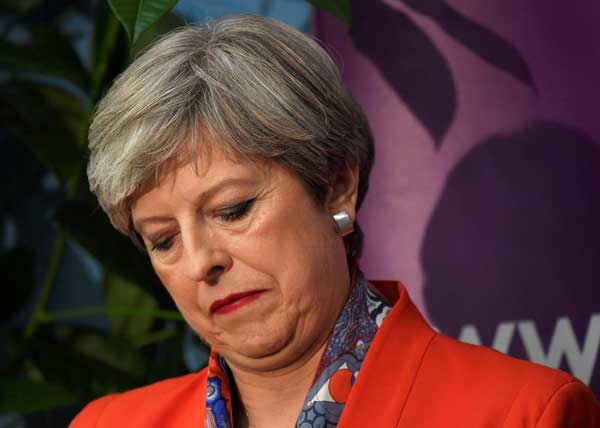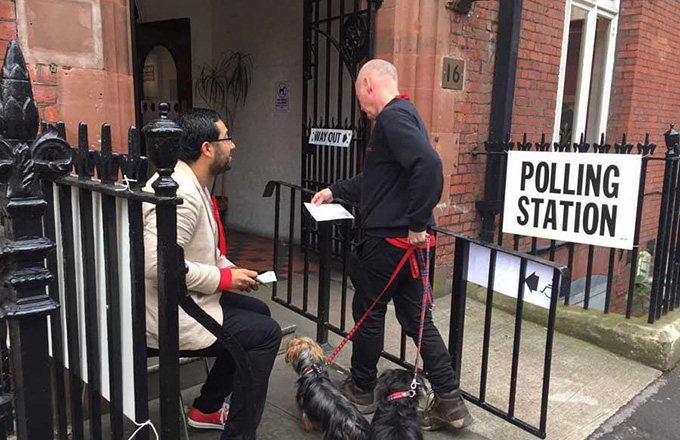May's future uncertain as Conservatives lose majority
 |
|
Britain's Prime Minister Theresa May waits for the result of the vote in her constituency at the count centre for the general election in Maidenhead, June 9, 2017. [Photo/Agencies] |
The UK faced renewed uncertainty as the Conservatives lost their majority in the House of Parliament, leaving them unable to form a government on their own.
The Conservatives might still be able to govern in coalition with the Northern Irish Democratic Unionist Party.
Although the Conservatives are still the largest party, Prime Minister Theresa May's position was not clear.
May was shaken despite winning her own seat of Maidenhead. Speaking at the count, May said: "If the Conservative party has won the most seats and most votes then it will be incumbent that we will have that period of stability and that is what we will do."
But many Conservatives thought that May's position was untenable and that she should resign. Conservative MP Anna Soubry told the BBC that May should consider her position. "It is bad. She is in a very difficult place … It was a dreadful night. I've lost some excellent and remarkable friends. This is a very bad moment for the Conservative party and we need to take stock and our leader needs to take stock."
May took the decision to call an election in the hope that the country would endorse her leadership before negotiations begin with the European Union on Brexit. May also put herself at the centre of the campaign, rather than the party, which makes the failure to gain a majority more personal.
The Labour Party did much better than expected. Jeremy Corbyn, the Labour leader won his seat in north London. He said that the UK had rejected austerity politics. "Politics has changed. Politics isn't going back into the box where it was before. What's happened is people have said they've had quite enough of austerity politics."
He also called for May to resign. "She wanted a mandate. Well, the mandate she's got is lost Conservative seats, lost votes, lost support and lost confidence. I would have thought that is enough for her to go."
The Conservatives needed 326 seats to get a majority but with seven seats to declare they had 313, Labour 260, the Scottish National Party, 35, Liberal Democrats 12 and the Democratic Unionist Party 10.
In Scotland, the Conservative Party fared far better than they had in decades. They ousted Angus Robertson, the SNP's leader in Westminster in his Moray constituency. The SNP's former leader Alex Salmond also lost to the Conservatives in Aberdeenshire. The SNP lost at least 19 seats.
- Britain's May on course to lose majority in British parliament: exit poll
- British PM May seen 22 seats short of majority in June 8 vote -YouGov
- British PM pledges tough action on terrorism
- In shadow of deadly attacks, British election campaign resumes
- British universities rely on overseas students, report says
- UK Brexit vote splits 1.6m British couples, study finds






















